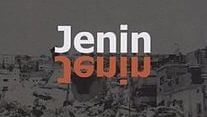 Everything you need to know about today’s coverage of Israel and the Mideast. Join the Israel Daily News Stream on Facebook.
Everything you need to know about today’s coverage of Israel and the Mideast. Join the Israel Daily News Stream on Facebook.
Today’s Top Stories
1. Hezbollah now views the Syrian civil war as “existential,” according to NOW Lebanon. Hezbollah’s rank and file fighters cannon fodder also view Syria as an existential threat — to their own existence. In a report that drew a lot of attention, Asharq al-Awsat wrote:
Involvement in the Syrian conflict has become increasingly contentious because of the mounting casualties incurred by Hezbollah members travelling across the border to fight alongside the Syrian armed forces, particularly around Damascus and Homs . . .
The sources, who spoke on condition of anonymity, also told Asharq al-Awsat that some Hezbollah followers support the group’s joining the ongoing fighting in Al-Qusayr on the basis of the resistance’s strategic goals, while those opposed say that this is a distraction from the central the aim of the group, fighting against Israel.
The sources noted that unease over the group’s participation has begun to spill over into the ranks of the fighters, some of whom refuse to take part in the fighting in Al-Qusayr.
2. The US is wrapping up a $10 billion arms deal with Israel, Saudi Arabia and the UAE to help counter Iranian threats. The NY Times reports it’s a complicated arrangement that took a long time to put together out of concern for keeping Israel’s qualitative edge. Israel is ironing out details with visiting Secretary of Defense Chuck Hagel.
While one goal was to ensure that Israel continues to field the most capable armed forces in the region to deter Iran and counter a range of threats, it was equally important to improve the capabilities of two important Arab military partners. Another challenge, senior administration officials said, was coming up with a package that could help Israel deal with various security challenges — but devised so it would not be viewed as an American endorsement of accelerated planning by Israel to strike alone at Tehran’s suspected nuclear facilities.
The deal would enable Israel to acquire advanced KC-135 refueling tanker planes, antiradiation missiles, radar equipment for jets, and the tilt-rotor V-22 Osprey.
3. Humanitarian aid groups in Gaza are slamming new exit permit requirements imposed by Hamas. The NY Times explains how the shakedown works:
Leaders of several nongovernmental organizations said the permit requirements, announced April 4, were an effort by Hamas, the Islamic militant group that controls Gaza, to collect information about their groups through application forms and interviews. Hamas has also sought salary information for the local employees to collect income tax, and it wants to tax vendors providing materials to internationally financed projects in Gaza, which the aid agencies oppose.
4. UK Media: The Israel Line or the Bottom Line? Why is The Guardian worried that the BBC’s new director of news is Jewish?
5. Visiting Manchester, HonestReporting’s Simon Plosker discussed the fine line between anti-Zionism and anti-Semitism. The Jewish Telegraph was on hand.
Israel and the Palestinians
 • The IDF’s producing a video in response to “Jenin Jenin.” That’s the “documentary” by Mohammed Bakri which claimed the IDF carried out atrocities during the 2001 battle of Jenin. Bakri, who received from funding from the PLO, later admitted that much of account was based more on “artistic choice” than on historical accuracy. YNet writes:
• The IDF’s producing a video in response to “Jenin Jenin.” That’s the “documentary” by Mohammed Bakri which claimed the IDF carried out atrocities during the 2001 battle of Jenin. Bakri, who received from funding from the PLO, later admitted that much of account was based more on “artistic choice” than on historical accuracy. YNet writes:
According to Brig. Gen. Mordechai, “public opinion is the regulator influencing the sphere of law, international powers and human rights organizations.
“Hence, in an age when war is screened live, before the camera’s lenses, spokespersons and hasbara have an increasingly critical role and influence military operations’ legitimacy.”
In light of this, he explained that there is an increased investment by the IDF in gathering visual materials, such as drone videos, and intelligence for hasbara purposes.
• There’s a small Gypsy community living in Jerusalem. They’re Muslim, and the Palestinians discriminate against them big time. Yet Jerusalem Gypsy activist Amoun Sleem told the LA Times she blames Israel for the degrading treatment. After reading Sleem’s description of humiliation by her Palestinian teacher, I’m not buying the blame-the-occupation line:
Growing up poor and motherless in the slums of Jerusalem’s Old City, Amoun Sleem dropped out of school at age 7 after her teacher repeatedly singled her out as a Gypsy, inspecting her hair for lice in front of the class and calling her “Nawar,” a derogatory Arabic term that means “dirty.” . . .
Q: Some of the harshest treatment seems to come from Palestinians.
A: I connect it to the occupation. They feel they are discriminated against by the Jews, so they look for someone else to discriminate against.
• Newsweek profiles left-wing Jerusalem activist Danny Seidemann. Yikes!
• Elliott Abrams ‘splains why the EU can’t bring Mideast peace.
- Israeli doctor treated Boston terrorist
- Is Jerusalem negotiating for access to Turkish airbase?
- Gen. Martin Dempsey: We may not be able to secure all Syrian chemical weapons.

